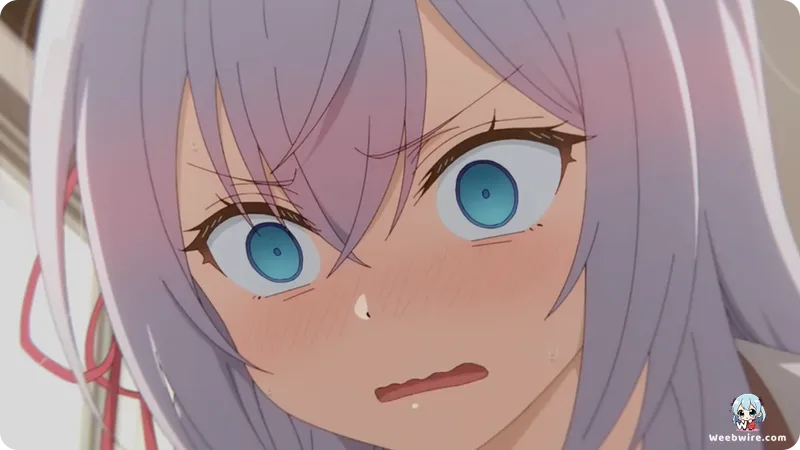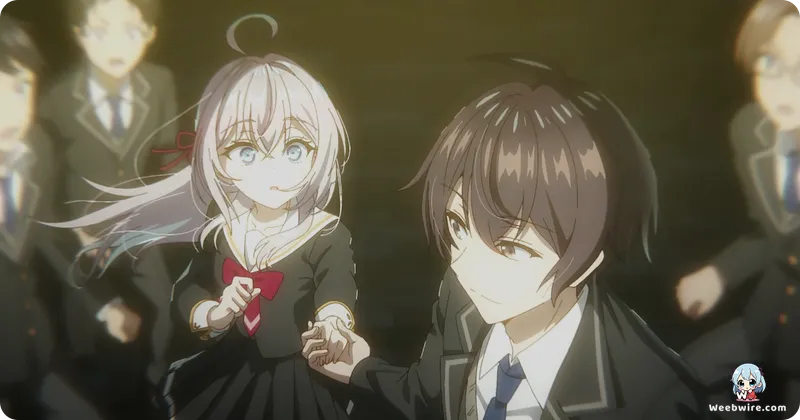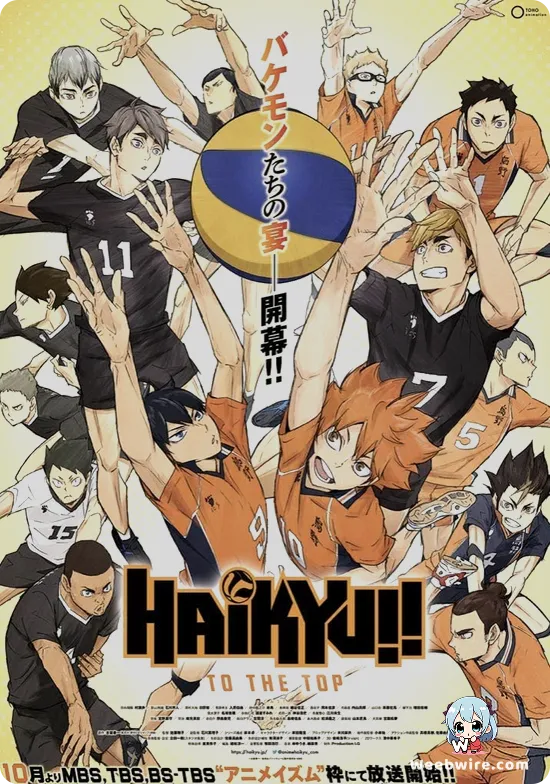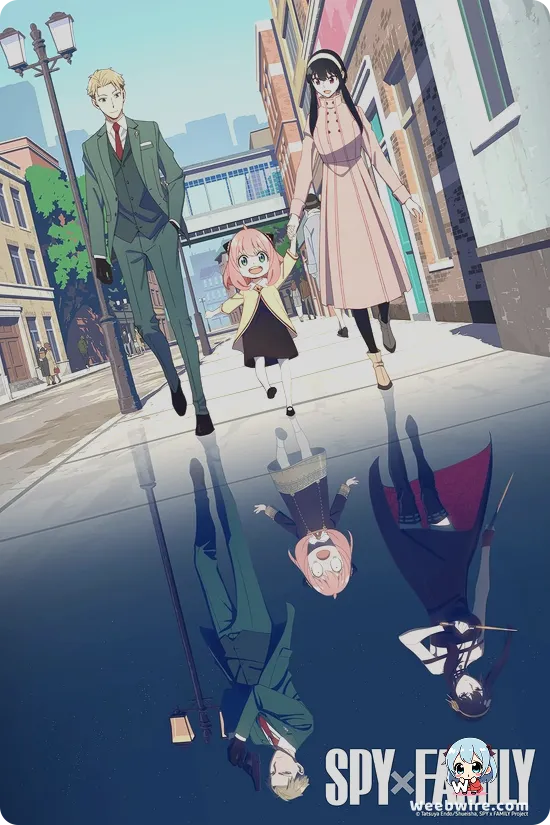Decoding Alya: The Unseen Depths and Linguistic Genius of 'Alya Sometimes Hides Her Feelings in Russian' Anime

The highly anticipated anime adaptation of Alya Sometimes Hides Her Feelings in Russian (Tokidoki Bosotto Russia-go de Dereru Tonari no Alya-san) has swiftly captivated global audiences since its debut in July 2024. Far more than a conventional romantic comedy, this series masterfully weaves linguistic intrigue with profoundly engaging character development, presenting a vibrant tapestry of heartwarming moments and clever humor that sets it distinctly apart. While its immediate appeal lies in the charming chemistry between the enigmatic Alya and her unassuming classmate Masachika, a closer examination reveals intricate layers and fascinating production insights that underscore its rising popularity.
At its narrative core, Alya Sometimes Hides Her Feelings in Russian centers on Alisa Mikhailovna Kujou, affectionately known as Alya, a brilliant half-Russian, half-Japanese student. She frequently murmurs her genuine thoughts and candid emotions in Russian, convinced that her deskmate, Masachika Kuse, remains oblivious. The entire premise hinges on a delightful, well-guarded secret: Masachika understands every single word. This ingenious linguistic asymmetry forms the bedrock of the series' comedic timing and romantic tension. It allows for a continuous, playful interplay between Alya's outwardly poised, often 'tsundere' demeanor and her unguarded, 'deredere' inner world, which she inadvertently exposes through her native tongue. Her seemingly innocuous Russian remarks frequently serve as clandestine confessions of affection, lighthearted teasing, or moments of profound vulnerability, all of which Masachika processes with a knowing, often subtly amused, expression. The true brilliance of the series resides in how these ostensibly private expressions transform into shared, intimate experiences, forging a bond between the two leads that is both uproariously funny and deeply touching.
The Linguistic Charm: Russian as a Narrative Device
A standout feature that enthralls dedicated fans is the meticulous and authentic integration of Russian phrases. Unlike many anime where foreign languages might feel superficial, Alya Sometimes Hides Her Feelings in Russian strategically employs the language as a fundamental narrative device. Viewers are frequently presented with untranslated Russian dialogue, followed by Masachika's internal Japanese translation or reaction, effectively inviting them into the characters' shared secret. This not only adds an enriching educational dimension for language enthusiasts but also significantly enhances viewer immersion. Alya’s frequent interjections of phrases like "пожалуйста" (pozhaluysta - please), "я тебя люблю" (ya tebya lyublyu - I love you), or various Russian exclamations of surprise and frustration offer a delightful, unfiltered glimpse into her true emotional state—a state she meticulously conceals when speaking Japanese. This innovative reliance on a specific foreign language for profound character insight represents a refreshing evolution within the romantic comedy genre, elevating it beyond typical genre tropes.
Sumire Uesaka: The Perfect Alya
The casting of Sumire Uesaka as Alisa Mikhailovna Kujou is, itself, a stroke of genius. Uesaka is widely recognized for her deep-seated passion for Russian culture, having extensively studied the language herself. Her profound affinity for Russia is well-documented throughout her career, from her musical endeavors to her public engagements. This authentic, real-life connection imbues her portrayal of Alya with exceptional authenticity, adding an almost meta-level of enjoyment for fans familiar with her background. Her remarkable ability to deliver Alya's Russian lines with genuine fluency and perfect inflection not only elevates the character's believability but also exemplifies a level of dedication that perfectly aligns with the series' core premise. This particular casting choice stands as a testament to the production team's keen understanding of the nuanced requirements for such a pivotal character, solidifying Uesaka as the unequivocally ideal voice for Alya.

Character Depth Beyond the Gimmick
Beyond its linguistic cleverness, the series also provides captivating insights into its well-developed characters. Alya, despite her seemingly flawless appearance and academic prowess, possesses a surprisingly vulnerable and endearing clumsy side, particularly when her feelings for Masachika are concerned. Her persistent attempts to maintain a stoic facade while her internal Russian monologue hilariously betrays her true emotions are a consistent source of comedic delight. Masachika, conversely, is a master of understated reactions. His seemingly laid-back and detached demeanor cleverly masks sharp observational skills and a genuinely compassionate heart. His ability to comprehend Russian is not merely a convenient plot device; it is intricately woven into his personal backstory, revealing his grandfather's profound admiration for Russian culture as the origin of his unique linguistic aptitude. This deeply personal connection adds significant depth to his character, providing a compelling and believable foundation for his secret knowledge.
From Web Novel to Anime Sensation
Before its highly anticipated anime adaptation, the Alya Sometimes Hides Her Feelings in Russian light novel series, skillfully penned by SunSunSun and beautifully illustrated by Momoco, garnered widespread critical acclaim. It initially blossomed as a web novel on Shosetsuka ni Naro, a prominent Japanese user-generated novel publishing platform, before being acquired by Kadokawa's Sneaker Bunko imprint. This impressive trajectory from a grassroots web novel to a highly celebrated light novel series, and now a beloved anime, speaks volumes about its intrinsic appeal and the strong emotional connection it forged with its readership. The light novel's sustained success, frequently ranking high in prestigious polls like Kono Light Novel ga Sugoi!, clearly indicated a substantial, pre-existing fanbase eagerly awaiting its animated debut. This organic growth powerfully showcases the strength of its fundamental concept and the undeniable chemistry between its characters, proving its unique blend of comedy and romance resonated deeply with a broad audience long before it graced screens.
Doga Kobo's Masterful Adaptation
The animation studio, Doga Kobo, renowned for its exceptional expertise in slice-of-life and romantic comedy anime, was an impeccable choice for bringing Alya Sometimes Hides Her Feelings in Russian to vibrant life. Their extensive portfolio, including celebrated works like Monthly Girls' Nozaki-kun and New Game!, is lauded for charming character designs, wonderfully expressive animation, and impeccable comedic timing—all vital elements for a series that relies heavily on subtle emotional cues and nuanced character reactions. Doga Kobo's established track record assures that the delicate balance between Alya's carefully hidden feelings and Masachika's knowing, subtle reactions is portrayed with the sensitivity and charm it unequivocally deserves. Their distinctive animation style vividly captures Alya's often exaggerated internal struggles juxtaposed with her composed external facade, significantly enhancing the comedic and romantic elements inherent in her unique linguistic habit. This artistic alignment further solidifies the anime's profound potential to authentically capture the beloved essence of the light novel, ensuring a truly engaging viewing experience for fans worldwide.
Credits
Alya Sometimes Hides Her Feelings in Russian
Author
SunSunSun
Cover Art
Momoco
Studio
Doga Kobo
Publisher
Kadokawa
Producers





